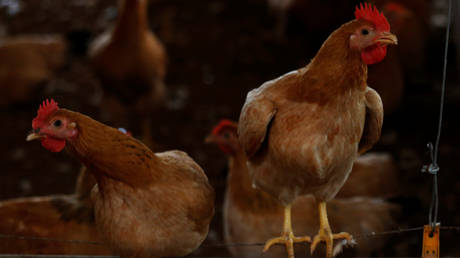
Regional authorities in Germany announced that around 29,000 chickens will be slaughtered in the country’s eastern area of Mecklenburgische Seenplatte after an outbreak of the H5N8 strain of bird flu.
In recent weeks, multiple countries across Europe have reported outbreaks of avian flu to the European Centre for Disease Prevention and Control (ECDC), with incidents in poultry in Croatia, Denmark, France, Germany, Sweden and the UK, as well as in wild birds in Belgium, Ireland and the Netherlands.
While the most recent incident only covers nearly 30,000 chickens, a 10-kilometer observation area is being set up around the German case to cover almost 500 nearby farms – which contain nearly 644,000 poultry between them – to prevent any potential further cases.
In response to the recent outbreaks, the EU Food Safety Agency (EFSA) has warned countries that close cooperation between animal, public, environmental and occupational health authorities will be required to avoid further escalation of the situation on the continent.
The EFSA has recommended similar measures to the UK’s Avian Influenza Prevention Zone, including continued surveillance of wild birds and their flocks to minimize infectious contact with farmed fowl. The UK government will additionally require poultry keepers to take a range of biosecurity precautions, including keeping free-range flocks indoors until the threat is deemed to have passed.
Although the risk to humans is considered low – as transmission from birds to people is rare and human-to-human transmission has not been observed – if contracted, it can cause severe illness.
Think your friends would be interested? Share this story!




